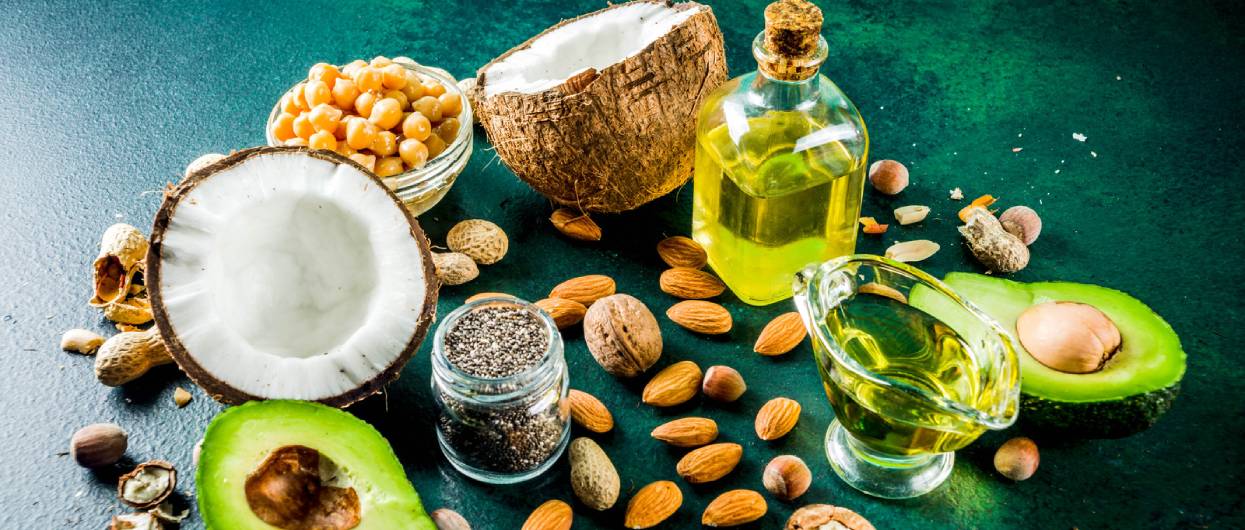
Being vegan isn’t just focusing on what’s healthy for your body, such as plant-based food. A vegan diet is just part of the larger picture of being earth and animal-friendly.
The Vegan Way of Life
The vegan way of life is to care about animals, as they are aware of their exploitation and cruelty, especially in meat production, to provide demand from human consumers. It’s not just in food but also in products that use animal skin and animal testing for cosmetic products.
If you’re switching, interested, or wanting to try their diet, you must have these essentials in your kitchen to start on your journey to veganism.
1. Vegan Vitamins
Being vegan means restrictively no animal-sourced food, including dairy products, eggs, fish, meat, and poultry. You may lack some essential nutrients like vitamin B12 (Cobalamin), essential in forming red blood cells and DNA synthesis. The deficiency of this vitamin can lead to anemia.
Pre-existing conditions of autoimmune disorders such as lupus or Grave’s disease, or taking certain heartburn medicines or diabetes medicines like metformin are more likely to have vitamin B12 deficiency. If you have these pre-existing conditions and are on a strict vegetarian diet, you can take vegan vitamins and add them to your meals to avoid deficiency.
2. Vegan Milk
There are alternatives for animal-sourced milk, such as almond, cashew, coconut soy, and oat milk, all non-dairy. Oat milk is high in fiber and regulates blood sugar levels. Soy milk is a great source of protein and omega-3 fatty acids. Almond milk is rich in vitamin E, an antioxidant, and coconut milk is high in vitamin B.
Also read: Top 10 Zapier Alternatives & Competitors In 20253. Vegan Mayo
The usual mayonnaise has these main ingredients such as chicken eggs and oil. Vegan mayo can be used in your salads, spreads, or other recipes, as they are made mainly from soy milk and oil.
4. Legumes
Other great sources of protein, fiber, and low-fat are legumes like lentils, peas, black beans, chickpeas, and more. These are great if you want to make lentil or split pea soup if you want to add it to your salad, snacks, or as part of your side dish.
Beans and lentils also help promote proper digestion as they are a great source of good bacteria to consume in the intestine, which can reduce the risk of colon cancer.
5. Grains
Grains are great for your main meals, like jasmine, wild or brown rice, pure, uncontaminated oats, and quinoa, which are all gluten-free. You can get your B vitamins and also minerals such as:
- Thiamine (B1) – helps in converting carbohydrates to energy.
- Niacin (B3) – helps in turning nutrients into energy and in forming and repairing DNA.
- Riboflavin (B2) – helps in breaking down carbohydrates into glucose and fats or steroids.
- Folate (B9) – helps in the production of red and white blood cells, DNA, and RNA.
- Iron – helps in making hemoglobin, which is the protein that carries oxygen in red blood cells.
- Magnesium – helps in regulating muscle and nerve function.
- Selenium – helps in protecting cells from damage and infections.
6. Sweeteners
A vegan diet does not just involve green leafy vegetables and fruits, as you would assume. But you can also make desserts with natural sweeteners such as organic pure cane sugar or coconut sugar.
Here are the other sweeteners you can use:
- Monk fruit.
- Pure maple syrup.
- Coconut nectar.
7. Whole Grain Pasta
A healthier choice would be to cook whole grain pasta such as those buckwheat pasta or noodles. You can make spaghetti with tomato sauce that you can mix with vegetables, beans, or even tofu as an alternative to meat.
Also, you can have a vegan, gluten-free pasta and noodles with these:
- Rice noodles.
- Soba noodles.
- Quinoa pasta.
8. Flour
For your pancakes and other baked treats, spelled flour can be used in baking muffins and bread or for your pancake batter. Buckwheat flour is also a great alternative, as they are high in protein and fiber and gluten-free.
The following are also gluten-free flour:
- Almond flour.
- Oat flour.
- Chickpea flour.
9. Nutritional Yeast
There are two types of nutritional yeast, which are unfortified and fortified. Both nutritional yeasts have natural vitamins and minerals, but the fortified ones were added with other supplements, such as vitamin B12, which is a good source since meat is restricted. Nutritional yeast is also a good source to reduce cholesterol levels.
Also read: How To Make $5000 In A Month? 20+ Easy Ways To Make 5K Dollar Fast + Tips!
10. Plant-based Cooking Oils
Cooking oils will be necessary for your stir-fried vegetable meals or fried tofu. It can also be used in your dressing on salads or baking. Most of these vegan cooking oils, such as sesame, coconut, and olive oil, are already in mass production, as you can see in groceries.
These oils are also becoming popular and are alternatives to those derived from animal fat.
Although coconut oil, some studies may claim that it can significantly increase HDL cholesterol levels (good cholesterol), some studies concluded that it also raises LDL or bad cholesterol levels. But coconut oil is certainly 90% saturated fat, so it’s recommended to use this in moderation.
Conclusion
There are plenty of options as more and more people are switching to a vegan lifestyle. It would help you be responsible for taking a healthy diet and taking care of and supporting animals against any cruelty.
Top 10 News
-
01
[10 BEST] AI Influencer Generator Apps Trending Right Now
Monday March 17, 2025
-
02
The 10 Best Companies Providing Electric Fencing For Busines...
Tuesday March 11, 2025
-
03
Top 10 Social Security Fairness Act Benefits In 2025
Wednesday March 5, 2025
-
04
Top 10 AI Infrastructure Companies In The World
Tuesday February 11, 2025
-
05
What Are Top 10 Blood Thinners To Minimize Heart Disease?
Wednesday January 22, 2025
-
06
10 Top-Rated AI Hugging Video Generator (Turn Images Into Ki...
Monday December 23, 2024
-
07
10 Top-Rated Face Swap AI Tools (Swap Photo & Video Ins...
Friday December 20, 2024
-
08
10 Exciting iPhone 16 Features You Can Try Right Now
Tuesday November 19, 2024
-
09
10 Best Anatomy Apps For Physiologist Beginners
Tuesday November 12, 2024
-
10
Top 10 Websites And Apps Like Thumbtack
Tuesday November 5, 2024







